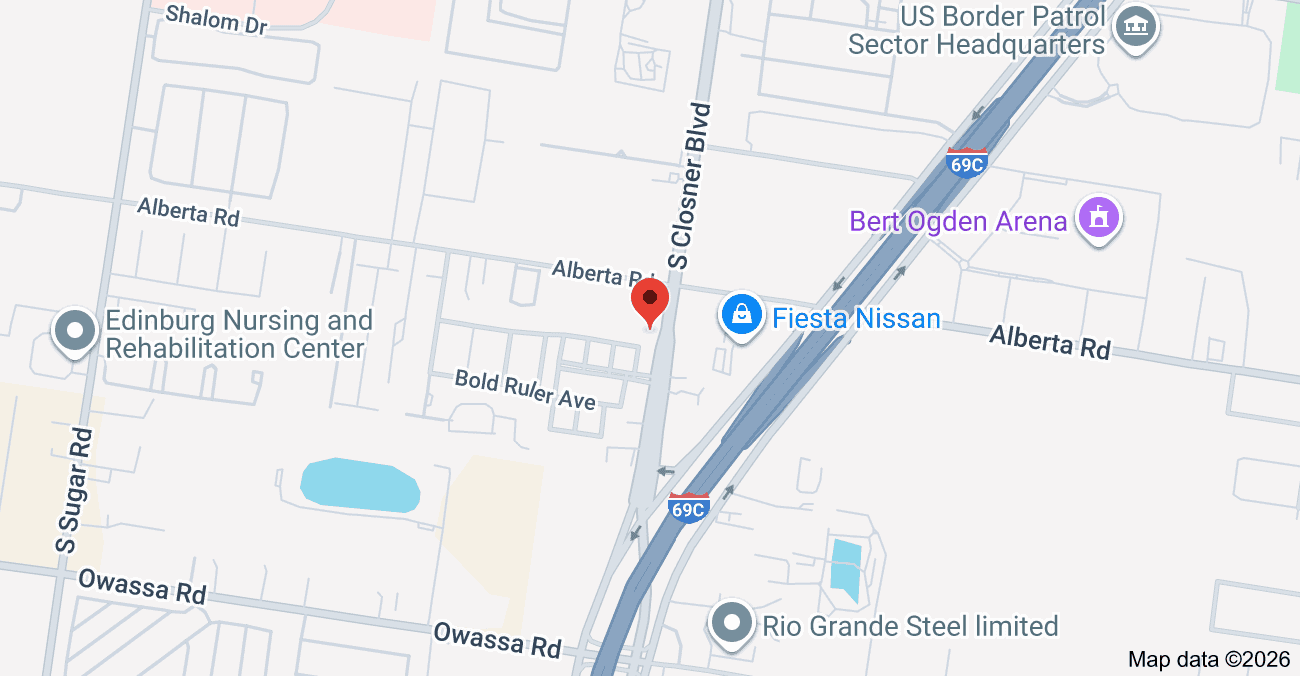Limited Availability: Treatment beds filling quickly. Call now for immediate placement – (844) 561-0606
Addiction Helpline America connects you to 1,024 drug rehab centers in Texas, offering a range of options including inpatient facilities, outpatient programs, and medication-assisted treatment centers. Our extensive directory simplifies the process of finding licensed and accredited treatment facilities throughout Texas, ensuring you receive the necessary support for your recovery journey.

 | A Helping HandA Helping Hand5115 S. Bus 281 Suite i Edinburg TX, 78539(956) 783-9997 | Payment Options:Self-pay options Private insurance Sliding scale payment assistance | ||
A Turning PointA Turning Point | Payment Options:Private insurance | |||
A Vision For You Help CenterA Vision For You Help Center | Payment Options:Self-pay options | |||
AA Eastside GroupAA Eastside Group | Payment Options:Free | |||
AAMA - Casa PhoenixAAMA - Casa Phoenix | Payment Options:Medicaid | |||
AAMA - Concilio Hispano LibreAAMA - Concilio Hispano Libre | Payment Options:Medicaid | |||
AAMA - Project TejasAAMA - Project Tejas | Payment Options:Medicaid | |||
AAMA - Selena Center for Youth PotentialAAMA - Selena Center for Youth Potential | Payment Options:Medicaid | |||
AAMA - Selena OutpatientAAMA - Selena Outpatient | Payment Options:Medicaid | |||
ABODE TreatmentABODE Treatment | Payment Options:Self-pay options | |||
ABODE Treatment - 1700 South Cherry LaneABODE Treatment - 1700 South Cherry Lane | Payment Options:Self-pay options | |||
ABODE Treatment - 701 South Cherry LaneABODE Treatment - 701 South Cherry Lane | Payment Options:Medicaid | |||
Abraxas Hector Garza CenterAbraxas Hector Garza Center | Payment Options:Self-pay options | |||
Access Counseling GroupAccess Counseling Group | Payment Options:Private insurance | |||
Access Counseling GroupAccess Counseling Group | Payment Options:Self-pay options | |||
Access Drug Rehab Palestine, TXACCESS2320 South Loop 256 Palestine TX, 75801 www.accessmhmr.org(903) 723-6136 | Payment Options:Medicaid Private insurance Self-pay options Financial aid Financing available Sliding scale payment assistance Medicare Military insurance | |||
ADA Women’s Center201 1St Street Galveston TX, 77550 www.adawomenscenter.org(409) 763-5516 | Payment Options:Self-pay options Financial aid Free Private insurance Daily: $132Sliding scale payment assistance | |||
ADA Women’s Center712 5Th Avenue North Texas City TX, 77590 www.adawomenscenter.org(409) 763-5516 | Payment Options:Self-pay options Financial aid Medicaid Free Private insurance Daily: $132 | |||
ADACCV - Alcohol and Drug Abuse Council for the Concho ValleyADACCV - Alcohol and Drug Abuse Council for the Concho Valley | Payment Options:Medicaid | |||
ADACCV - Sara's HouseADACCV - Sara's House | Payment Options:Medicaid |
Find Texas drug rehabs in cities near you or sort by letter.
For anyone seeking help for addiction for themselves or a loved one calls to Addiction Helpline America are completely confidential and available 24/7.
Please note: any treatment center listed on our site that receives calls is a paid advertiser.
Calls to a specific treatment center’s listing will be connected directly to that center.
Calls to our general helpline will be answered by treatment providers, all of whom are paid advertisers.
By calling the helpline, you agree to our terms and conditions. These calls are free of charge and carry no obligation to enter treatment. Neither Sober Steps nor anyone answering your call receives a commission or fee based on your choice of treatment provider.
If you’d like to explore additional treatment options or connect with a specific rehab center, you can browse our top-rated listings, visit our homepage, or call us at (844) 561-0606. You may also contact us for further assistance.
Calls to any general helpline will be answered or returned by one of the treatment providers listed, each of which is a paid advertiser:
Our helpline is available 24 hours a day, 7 days a week at no cost to you and with no obligation for you to enter into treatment. We are committed to providing support and guidance whenever you need it.
In some cases, Addiction Helpline America charges our verified partner a modest cost per call. This fee helps us cover the costs of building and maintaining our website, ensuring that we can continue to offer this valuable service to those in need.
When seeking addiction treatment, it's essential to understand the various types of rehab programs available. In Texas, treatment options include inpatient facilities, outpatient programs, and detox centers, each tailored to meet different needs and levels of addiction severity.
Inpatient rehab offers a structured environment with 24/7 care, ideal for individuals needing intensive support. Outpatient programs provide flexibility for those who may not require full-time care but still need professional guidance. Detox centers focus on medical stabilization, helping individuals safely withdraw from substances before entering further treatment.
The cost of rehabilitation services can vary significantly based on the type of program, location, and amenities offered. Understanding these costs can help individuals and families make informed decisions about their treatment options.
In Texas, many facilities offer a range of payment options, including self-pay, private insurance, and sliding scale fees based on income. It's crucial to verify insurance coverage beforehand to understand potential out-of-pocket expenses, ensuring access to the best possible care without financial strain.
Evaluating the success rates of different drug rehab programs can provide insight into their effectiveness. Success is often measured by the rate of sobriety post-treatment and the ability to maintain a drug-free lifestyle long-term.
Many Texas rehab centers publish their success rates and testimonials from former clients, which can help prospective patients gauge the quality of care. Research has shown that programs incorporating therapy, aftercare, and community support tend to yield higher success rates, emphasizing the importance of a comprehensive approach to addiction recovery.
Aftercare services play a crucial role in sustaining recovery after completing a rehab program. These services offer ongoing support to help individuals transition back into daily life and maintain sobriety.
In Texas, many rehab centers provide aftercare programs that include group therapy, counseling, and support groups like Alcoholics Anonymous (AA) or Narcotics Anonymous (NA). Engaging in these support networks can significantly reduce the risk of relapse and foster a sense of community among individuals in recovery.